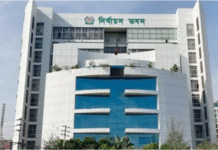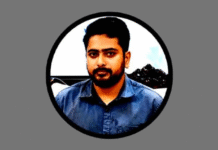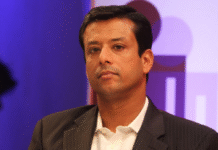A prosecution witness on Sunday blamed Jamaat-e- Islami leader Maulana Abdus Sobhan for the killing of his father and uncle during the 1971 Liberation War.
“On the 5th of Bangla month of Jaistha during the Liberation War, Maulana Sobhan in association with Pakistan occupation forces had captured my father Rustam Sheikh, uncle Jabbar Sheikh and other villagers after storming into houses at Purba Jamia Bharara in Pabna,” recalled Ali Rana Sheikh.
He was testifying as PW 17 before the International Crimes Tribual-2 against the accused in the dock.
All the captured people were later dumped in front of local Shahi Mosque, the PW said.
“At one stage, my father and uncle were gunned down at the behest of Maulana Sobhan as the duo brothers began squabbling with the Jamaat leader,” said Rana.
The PW further said then the remaining captured people had been taken to makeshift army camp set up at Noorpur power centre where they were tortured.
The following day, the captured people were taken to Debottor bamboo mangrove where the army fired shots on them indiscriminately, killing six people on the spot. The rest four suffered bullet wounds and died gradually after enduring pains, said Rana.
The deposition over, the PW was cross-examined by the defence counsel.
On December 31, 2013, the tribunal framed charges against accused Jamaat-e-Islami leader Maulana Sobhan for his involvement in crimes against humanity, including genocide, during the 1971 Liberation War, dismissing his discharge plea.
On September 19, 2013, after perusing the formal charge along with relevant statements and documents submitted by the prosecution, the tribunal took cognisance of the charges against Sobhan as it found a strong prima facie case against the accused under sections 3(2), 4(1) and 4(2) of the International Crimes (Tribunals) Act 1973.
On September 20, 2012, Sobhan, the number three man in the Jamaat-e-Islami hierarchy, was held by the members of an army intelligence agency at the Bangabandhu Bridge toll plaza in Tangail in connection with a case of violence. Later, the accused was handed over to the police.
The tribunal, upon a prosecution plea, showed Sobhan arrested in connection with the case of the 1971 crimes against humanity.
According to the prosecution, it received allegations like genocide, rape, arson and looting perpetrated by Sobhan, the then leader of Pabna Peace Committee (collaborator) and Pabna district Jamaat ameer, in collaboration with the Pakistan occupation forces, including Razakar, Al Badr and Al Shams, during the Liberation War.
Sobhan had allegedly played a key role in organising Razakar, Al Badr and Al Shams, the auxiliary forces of the Pakistani junta, in Pabna district.
Source: UNBConnect










